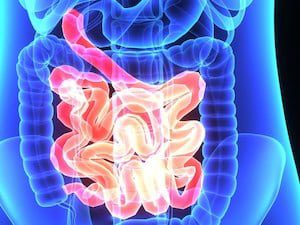Qi and blood deficiency has now become a widespread health issue, affecting people of all ages and genders. When an individual exhibits a healthy physical appearance, such as a rosy complexion, it often indicates sufficient qi and blood; conversely, various discomforts may signal inadequate qi and blood. Despite many recognizing this issue and attempting to address it, the results are often limited, prompting further exploration into the underlying reasons.
Qi and blood, as core concepts in traditional Chinese medicine, encompass the elements of “qi” and “blood.” “Qi” plays a role in propelling and protecting bodily functions, ensuring smooth functioning of various systems like kidney qi and lung qi, while “blood” serves as the lifeblood circulating throughout the body to nourish organs and tissues. They complement each other, with detriment to one affecting the other, hence traditional Chinese medicine often discusses qi and blood together.
Signs of qi and blood deficiency vary, including dry eyes, yellowish whites with bloodshot eyes, dull skin, dry and brittle hair prone to falling out, decreased physical strength, reduced quality of sleep, and weakened immune system. These symptoms alert individuals to the poor state of their qi and blood.
The factors contributing to qi and blood deficiency are complex and diverse, including prolonged eye strain, excessive mental stress, frequent late nights, and improper lifestyle habits. These issues accumulate over time, gradually disrupting the body’s balance of qi and blood.
Faced with persistent qi and blood deficiency, employing a singular or haphazard approach to regulation often proves ineffective. The key lies in identifying the specific causes on an individual basis and adopting personalized adjustment strategies. Just as individual dietary preferences vary, supplements that work for others may not be suitable, emphasizing the importance of tailoring strategies to one’s own circumstances.
Effective regulation of qi and blood involves a comprehensive consideration of various aspects: – Dietary adjustments: Increasing foods rich in nutrients necessary for blood production, such as animal liver, fish, shrimp, red dates, and black sesame, which contain vitamins and trace elements that promote qi and blood generation effectively. – Emotional management: Positive emotions strengthen immunity, enhance blood circulation, and improve complexion. – Acupoint stimulation: Massaging acupoints like the temples, occiput, and cervical vertebrae promotes circulation of qi and blood. – Regular routines: Ensuring adequate sleep and avoiding overextending the body by staying up late. – Chinese herbal assistance: Utilizing Chinese herbs like Chinese yam, lotus seeds, and goji berries under the guidance of a traditional Chinese medicine practitioner for personalized adjustment.
In conclusion, the key to addressing qi and blood deficiency lies in accurately identifying individual causes and implementing targeted measures rather than following trends blindly. Proper regulation not only enhances physical health but also fundamentally improves quality of life.


